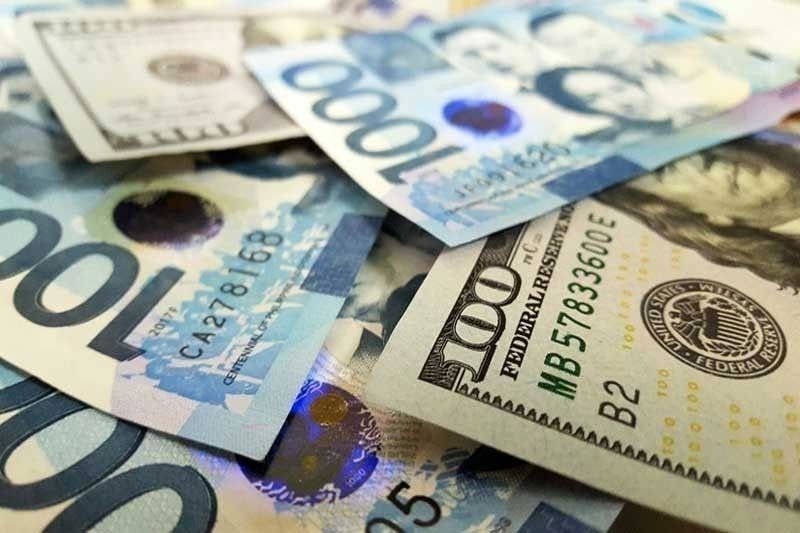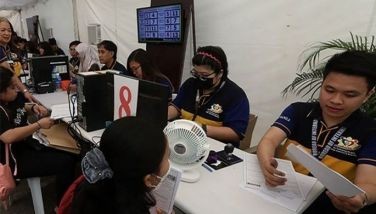BOP surplus gets boost from IMF reserve fund

MANILA, Philippines — The reserve asset fund created by the International Monetary Fund (IMF) to provide additional global liquidity amid the pandemic boosted the Philippines’ balance of payments (BOP) position for the second month in a row in August, according to the Bangko Sentral ng Pilipinas.
BSP Governor Benjamin Diokno said the country posted a BOP surplus of $1.04 billion in August, up sharply from the $642 million surplus in July. The latest figure was also an improvement from the $657 million surplus in August last year.
Last Aug. 23, the Philippines received $2.78 billion in special drawing rights allocation from the IMF. This was part of the unprecedented $650-billion SDR allocation to provide additional liquidity to member countries as efforts are exerted to address the COVID-19 crisis.
“The BOP surplus in August 2021 was due mainly to the additional allocation of SDR to the Philippines, given the IMF’s efforts to increase global liquidity amid the pandemic and the BSP’s income from its investments abroad,” Diokno said.
He said the inflows were partly offset by the national government’s withdrawals from its deposits with the BSP to settle the country’s foreign currency debt obligations as well as the central bank’s net foreign exchange operations.
The latest BOP surplus was the highest since the $2.61 billion recorded in April.
The BOP is the difference in total values between payments into and out of the country over a period.
A surplus means more dollars flowed into the country from exports, remittances from overseas Filipino workers, business process outsourcing earnings and tourism receipts compared to the amount used to pay for the importation of more goods, services and capital.
Diokno said the surplus last month helped reduce the cumulative BOP deficit from January to August to $253 million compared to the $1.3 billion shortfall recorded from January to July.
However, the eight-month deficit was a reversal of the $4.77 billion BOP surplus recorded from January to August last year as trade continues to recover with the further reopening of the global economy despite the pandemic.
“Based on preliminary data, this cumulative BOP deficit was partly attributed to a wider merchandise trade deficit and lower net foreign borrowings by the national government compared to the same period last year,” Diokno said.
Latest data from the Philippine Statistics Authority (PSA) showed the country’s trade deficit swelled by 57.7 percent to $21.31 billion from January to July compared to $13.51 billion in the same period last year as trade recovers with the reopening of the global economy from a major shutdown caused by the pandemic.
The BSP is now looking at a lower BOP surplus of $4.1 billion instead of $7.1 billion this year and $1.7 billion instead of $2.7 billion next year after taking into consideration a more guarded view of global and domestic economic developments going into the remaining months of 2021.
It also considered the rapid spread of the more transmissible COVID-19 Delta variant, which led to recent spikes in infection cases and prompted enforcement of more austere mobility restrictions as well as the supply and logistical issues in vaccine administration.
The BSP now expects exports to increase by 14 percent and imports to grow by 20 percent this year. Services exports are seen to shrink by two percent instead of growing by six percent and services imports to contract by four percent instead of expanding by seven percent.
Michael Ricafort, chief economist at Rizal Commercial Banking Corp., said the country’s strong economic fundamentals and investment grade rating from Japan Credit Rating Agency, S&P Global Ratings, Moody’s Investors Service, and Fitch Ratings would continue to attract foreign investments, further boosting the BOP as well as gross international reserves (GIR) levels.
“Thus, these reflect the Philippines’ improved economic and credit fundamentals, as well as improvements in fiscal performance in recent years that could help attract more international investments and international loans at much lower cost and with better terms into the country, in view of the need to finance COVID programs and other economic stimulus measures needed to help sustain the economic recovery, thereby could also further help boost the country’s BOP and, in turn, GIR to new record highs, going forward,” Ricafort said.
- Latest
- Trending

























